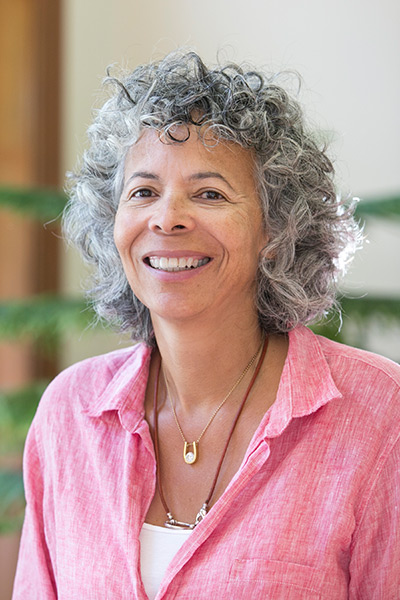Published on April 24, 2020 by Morgan Black

Professor Jill Evans has been an integral member of Cumberland School of Law since she joined the faculty in 1994. At the start of the fall 2020 semester, she assumed the role of associate dean of academic affairs.
A graduate of Northwestern University’s School of Law, Northwestern’s Kellogg Graduate School of Management and the University of California-Irvine, Evans’ primary teaching interests include torts, environmental law and business law. Recently, she also took over as the director of Cumberland’s International Program.
Learn more about Professor Evans:
The law school has always been student-centered. Both faculty and staff were and remain committed to ensuring the student classroom experience is one that encourages learning and that faculty are available outside of class for additional help. That focus has expanded to include adding additional academic support resources that are designed to facilitate success while in law school and also success on the bar exam. Our Career Development Office has also widened the scope of services and presentations they offer to students. Equally important, however, has been the growing effort to support student health and wellness, and other non-academic needs. Cumberland is both receptive to different ideas to enhance the student experience while in law school, and willing to experiment to find the right balance.
I love arts and crafts but, as I concluded in college, I was neither creative nor talented enough to be other than a starving artist. I still dabble as a stress-reliever and to provide a balance to work and family demands. It is a nice creative outlet.
I have several different research threads in progress. My current research focus is on third party duties of care in tort law and that research encompasses several different areas where social changes may demand reconsideration of traditional tort obligations. I have a work-in-progress with a co-author on removal and have finished the third, and last, in a series of articles on repose, although I am considering taking it in a slightly different direction.
I now have oversight of the Cambridge Study Abroad Program and have been pretty immersed in pulling the pieces together for next summer. We have made some changes that I hope will provide an even better experience for students in the program and I am pretty excited about the things we have planned. I have also secured larger space for our Children in Law study area which will support students with children. Current events have impacted the progress in cleaning and refurbishing the space, but I hope we will not be too far down on the list when university operations resume.
There isn’t any one piece of advice that I can point to as the best. My father was frequently my go-to, but I’ve had great advice from different sources depending upon the context and the time. If I were to say which advice has served me the best across the board, it would probably be a version of the “be true to yourself” adage that floats through the ether. In my case it was actually, “never lie to yourself.” I do not recall the source but have found that examining the real reasons motivating an action I am contemplating or reaction I am having helps determine what I then do or whether I adjust my response. It has proven a valuable approach.
Honestly, my favorite part about it is just engaging with students from different backgrounds and with different perspectives and life experiences about some of the legal issues we face today. I enjoy our students both in and out of the classroom and consider myself fortunate to be at a school that values these relationships.
Hah! I should probably run away very fast. I hear it is a thankless role, but frankly it will be an opportunity to see the different demands placed on the law school that we, as professors, are not necessarily aware of or would be involved in.
Located in the Homewood suburb of Birmingham, Alabama, Samford is a leading Christian university offering undergraduate programs grounded in the liberal arts with an array of nationally recognized graduate and professional schools. Founded in 1841, Samford enrolls 6,324 students from 44 states, Puerto Rico and 16 countries in its 10 academic schools: arts, arts and sciences, business, divinity, education, health professions, law, nursing, pharmacy and public health. Samford is widely recognized as having one of the most beautiful campuses in America, featuring rolling hills, meticulously maintained grounds and Georgian-Colonial architecture. Samford fields 17 athletic teams that compete in the tradition-rich Southern Conference and boasts one of the highest scores in the nation for its 97% Graduation Success Rate among all NCAA Division I schools.
